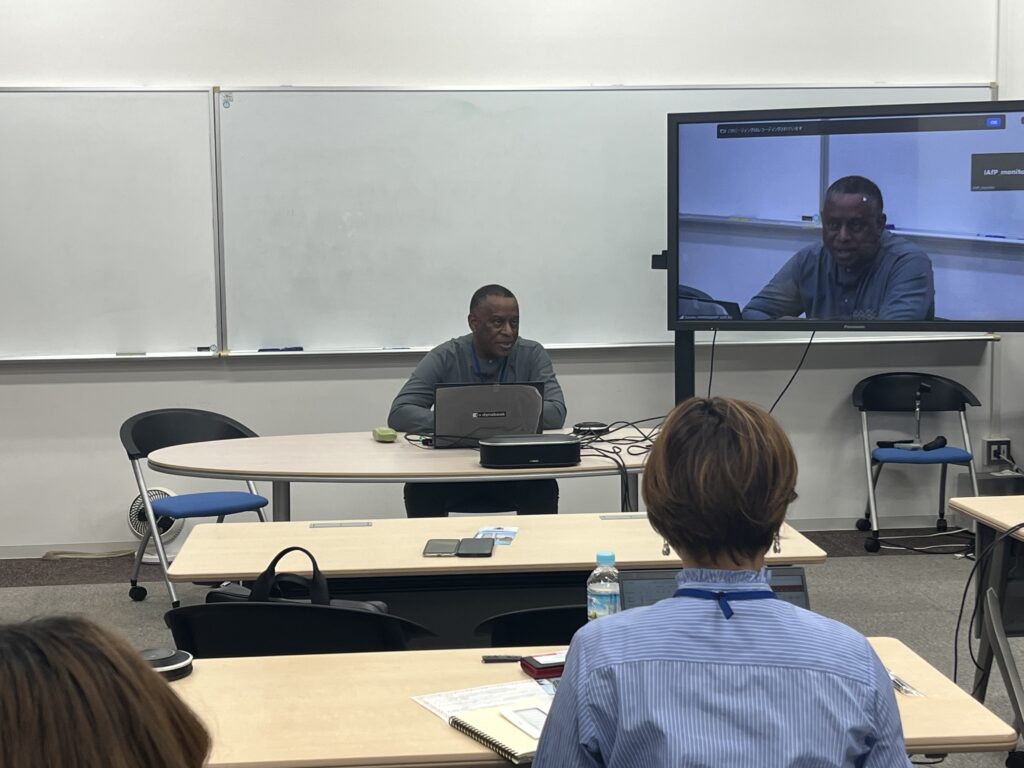

On January 17, 2025, Kyoto University, in collaboration with Tokyo University of Foreign Studies (TUFS), held the 4th Africa-Japan University Education Exchange Meeting in a hybrid format. This meeting was organized as part of the Innovative Africa Program (IAfP): Educational Networking Programs for Human Resource Development in Africa’s Sustainable Development Goals (SDGs), which is funded by Japan’s Ministry of Education, Culture, Sports, Science and Technology (MEXT). A total of 108 participants attended the event, including representatives from 18 universities in Japan, 9 universities in Africa, and one organization involved in educational initiatives.
During the opening session, Mr. Yusuke Shoji, Assistant Director of the Higher Education Bureau at MEXT, delivered a speech on behalf of the department. Following this, Mr. Cheikh Tidiane Gadio, former Minister of Foreign Affairs of Senegal, passionately discussed the importance of community-based school management and education for girls, leaving a lasting impression on the participants.
In the first session, Professor Margaret J. Hutchinson, Vice-Chancellor of the University of Nairobi (Kenya), delivered the keynote speech. She provided an overview of her university and discussed the significance of student exchanges between Japan and Africa. Drawing from her own experience studying abroad, Professor Hutchinson shared the immense benefits that academic and research exchanges bring to both students and scholars.
In the second session, three former international students shared their messages with African university students and faculty members. Dr. Ahmed Abdelrahman Zkria, Associate Professor at Kyushu University, spoke about his career path and research at Kyushu University as well as his efforts to support international students. Mr. Fredrick Mussa, a project-implementation officer at Tokyo University of Agriculture, highlighted the various benefits of studying in Japan, such as access to cutting-edge research, exposure to new cultures, and comprehensive career support. However, he also shared the challenges he faced, including adapting to Japan’s unique etiquette culture and overcoming the language barrier. Ms. Ameni Guizani from GPSS Engineering Inc. discussed the difficulties she encountered while working in Japan, particularly strict workplace rules and the cultural expectation of “reading the atmosphere.” She emphasized the importance of joining various communities in order to navigate these challenges.
In the third session, Akita University, Kansai University, and Tokyo Metropolitan University delivered presentations on their support systems for international students and unique aspects of student life at their institutions. Akita University, as an implementing institution of the Study in Japan Global Network Project, introduced its efforts to increase the number of international students coming to Japan. Kansai University introduced the KU-SMART PROJECT and presented various support initiatives, including a summer course for students with no prior Japanese knowledge and Collaborative Online International Learning (COIL), an online-distance learning program. Tokyo Metropolitan University showcased its original scholarship programs for international students and introduced its Space Physics Experimental Laboratory, a key research focus of the university.
The meeting concluded with closing remarks by Professor Misa Hirano from Kyoto University's Graduate School of Asian and African Area Studies (ASAFAS), who emphasized the importance of conducting educational exchanges between Africa and Japan.
